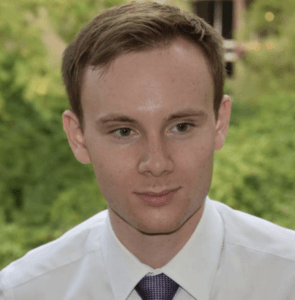We’ll be featuring mini-profiles of our new PhD students over the next few weeks. We look forward to welcoming them into our community!
 Dylan Clark-Boucher
Dylan Clark-Boucher
Hi there! My name is Dylan, and I recently graduated from the University of Michigan, where I’ve spent the last two years completing an MS in biostatistics. Originally from Essex, Vermont, a small suburban town close to Burlington, I’m excited to be returning to New England for my PhD.My interest in biostatistics began in college. As a double-major in mathematics and statistics, I was contemplating careers in applied math, economics, and actuarial science—without much enthusiasm. Eventually, I stumbled upon biostats, and was drawn to the field due to its close ties to epidemiology, in which I’d had a longstanding interest. Flash forward two years, I was completing a summer program in biostatistics at the University of Michigan, where I learned more about the intersect between statistics, machine learning, and public health. The experience was enough to convince me to return to Michigan for a master’s degree, and since then, I’ve had the pleasure of doing research in areas such as mediation analysis, clinical prediction modeling, and high-dimensional inference.Outside of the classroom, I try my best to get outdoors. I love hiking, kayaking, and swimming, and just about anything else that involves nature. When the weather is not permitting, I also like movies, TV, board games, and reading; and I’m a dedicated follower of Boston sports teams, especially the Bruins and Patriots.
 Christian CovingtonHi! My name is Christian Covington and I grew up around Winston-Salem, North Carolina. I have a bachelor’s degree in statistics from Cornell University and a master’s in computer science from the University of Waterloo. Between the two, I worked in various research roles in and around Boston.My master’s research has primarily been in formal data privacy and developing methods that provide good statistical guarantees while relaxing typical assumptions on the data analyst’s a priori knowledge of their data. More recently, I’ve begun work on model sensitivity and how to generalize existing tools to broader classes of estimators. In the future, I hope to explore how notions of model sensitivity can help researchers better probe the ramifications of various features of their analyses (model specification, measurement, etc.) More generally, I like to think about the theory and philosophy of the practice of statistics.Outside of work, I like watching soccer, doing crosswords, and $10 lunch.
Christian CovingtonHi! My name is Christian Covington and I grew up around Winston-Salem, North Carolina. I have a bachelor’s degree in statistics from Cornell University and a master’s in computer science from the University of Waterloo. Between the two, I worked in various research roles in and around Boston.My master’s research has primarily been in formal data privacy and developing methods that provide good statistical guarantees while relaxing typical assumptions on the data analyst’s a priori knowledge of their data. More recently, I’ve begun work on model sensitivity and how to generalize existing tools to broader classes of estimators. In the future, I hope to explore how notions of model sensitivity can help researchers better probe the ramifications of various features of their analyses (model specification, measurement, etc.) More generally, I like to think about the theory and philosophy of the practice of statistics.Outside of work, I like watching soccer, doing crosswords, and $10 lunch.



